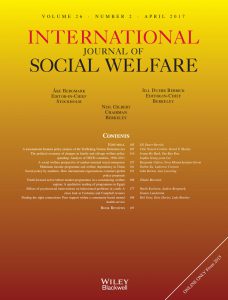Speech, Identity, and Losing the Accent
The voice isn’t often taken as a subject for Sociological analysis, despite affecting and representing a great range of highly sociological topics such as social stratification and identity, amongst many others. Taking the voice as an object of study can be incredibly illuminative, as trends in the way we speak are a clear indicator of wider social changes, as well as being highly applicable to social theory. I started thinking about this after hearing a radio programme on the BBC, that...




1530-2415/asset/SPSSI_logo_small.jpg?v=1&s=703d32c0889a30426e5264b94ce9ad387c90c2e0)
